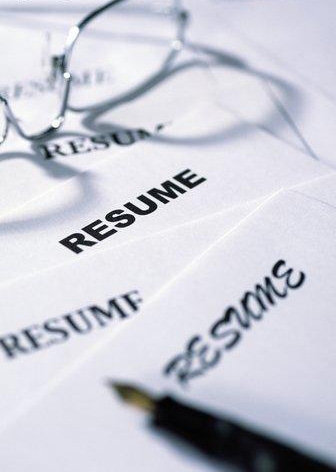 College teaches people how to hone skills in everything from biochemistry to philosophy, all in an effort to prepare them for the workforce. But sometimes, the hardest part comes when students have to compile these skills into a sometimes–crucial document for prospective employer use: the resume. Believe it or not, it can be even harder for writers. With people in the sciences and mathematics, some leeway is given when it comes to resumes, since grammar and sentence structure presumably aren’t the applicant’s forte. However, when it comes to writers’ resumes, if you can’t effectively put on paper (in a clear and concise fashion) what your experience and goals reflect, then hiring coordinators will assume that your writing is probably more of the same (even if it isn’t).
College teaches people how to hone skills in everything from biochemistry to philosophy, all in an effort to prepare them for the workforce. But sometimes, the hardest part comes when students have to compile these skills into a sometimes–crucial document for prospective employer use: the resume. Believe it or not, it can be even harder for writers. With people in the sciences and mathematics, some leeway is given when it comes to resumes, since grammar and sentence structure presumably aren’t the applicant’s forte. However, when it comes to writers’ resumes, if you can’t effectively put on paper (in a clear and concise fashion) what your experience and goals reflect, then hiring coordinators will assume that your writing is probably more of the same (even if it isn’t).
Here are 5 Do’s for a Writer’s Resume:
1. List the school that you attended and/or are attending. This is a glaring omission on resumes. Even if you haven’t completed school yet, listing the institution you are attending (with relevant courses) is helpful so employers can see what you’re up to and/or working toward.
2. Write a cover letter. Receiving a resume without a cover letter is kind of like receiving an empty envelope addressed to you in the mail. What’s the point? By including some sort of cover letter or email message, you are letting the employer know of your intentions and also adding a personal touch behind the application.
3. Send what is asked. If a prospective employer asks for a writing sample, send one. Meet the specific criteria and don’t make any excuses: “I haven’t written anything lately.”
4. Keep it to one page. Think of your resume as a “Greatest Hits” compilation. Would Steven Tyler include his rendition of The National Anthem on his personal Greatest Hits? Probably not. You don’t want to include everything—just the best and brightest spots and/or points that are applicable to the job you’re applying for.
5. Write clear concise sentences. Don’t include text speak. You don’t want to write in the same manner you’d leave a comment on your friend’s Facebook status.
Here are 5 Don’ts for a Writer’s Resume:
1. Send a “joke” resume. Hilarious? Yes. Well-written? Possibly. Truthful? Not one iota. If you want to be taken seriously, this is the route NOT to go.
2. Ask a company, “What are you all about?” in a cover letter. Do your research on the company. Most if not all companies have websites; utilize the resources the Internet allots you. It also impresses the employer when you’ve done your homework.
3. Assume any female employer is a “Mrs.” This is a huge no-no. This isn’t elementary school where you can get away with calling any female teacher “Mrs.” out of pure lackadaisical habit. “Ms.” is the way to go.
4. Downplay yourself. At the opposite end of a joke resume is a resume where the applicant puts himself down: “I don’t have a lot of experience,” “Not sure if this is what you want,” etc. Be confident in what you can offer.
5. List the job you are applying for on your resume. This is presumptuous and employers won’t like it. While you want to appear confident, this is an example of overconfidence.
Whether you are a writer or a scientist, putting together a resume should be a fun experience (yes, fun!). The information you put forth should be easy since the biggest resource you have is you!
 Megan McLachlan is an Associate Editor at College Prowler. As an Associate Editor, Megan enjoys reading about the many perspectives college life has to offer, as well as the similarities (no one likes the snow). Aside from writing and editing, Megan enjoys reading the “On Language” column in New York Times Magazine, drinking coffee, and schooling people on mindless pop culture nonsense (“Kevin” was the name of Screech’s robot-friend on “Saved by the Bell”).
Megan McLachlan is an Associate Editor at College Prowler. As an Associate Editor, Megan enjoys reading about the many perspectives college life has to offer, as well as the similarities (no one likes the snow). Aside from writing and editing, Megan enjoys reading the “On Language” column in New York Times Magazine, drinking coffee, and schooling people on mindless pop culture nonsense (“Kevin” was the name of Screech’s robot-friend on “Saved by the Bell”).
